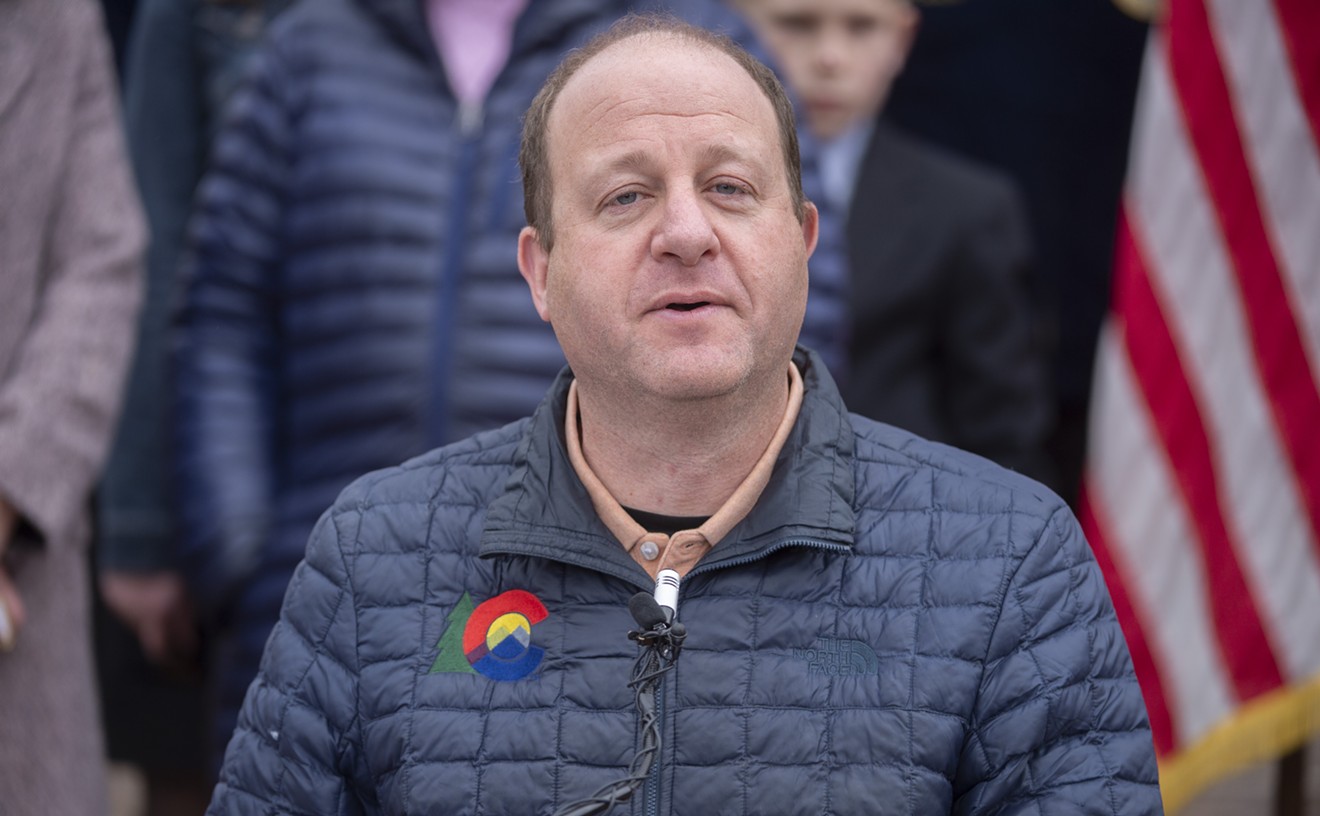If you’re an avid consumer of Colorado political news, there’s a particular genre of story about Senator Cory Gardner that you’ve likely read dozens of times over the last three years. The latest version comes from the Colorado Sun, which surveys a wide range of pollsters and pundits on Gardner’s effort to “walk the tightrope” of winning re-election in a state where Republican President Donald Trump remains deeply unpopular with voters, and wonders if Gardner’s support for Trump has a “breaking point.”
It’s easy to understand why this story gets told, over and over again. Journalists tend to cover political contests through the lens of strategy and tradecraft, and Gardner’s Trump-era predicament is good fodder for that kind of coverage. Democrats are eager to paint him as two-faced, or gloat about his long reelection odds. Republican operatives want to create the impression that he’s at least somewhat conflicted about an unpopular president.
But the persistent focus on Gardner’s supposed strategic dilemma — story after story breaking down polling crosstabs and demographic trends and armchair political consulting — too often misses the forest for the trees. It has needlessly complicated a very clear picture: Cory Gardner loves Donald Trump! Donald Trump loves Cory Gardner! They are close allies, eagerly working to secure one another’s reelection and continue enacting their shared vision for the country.
Gardner is not walking a tightrope; he is not “threading a needle”; he is not “in a bind” or a "pinch"; he is not “between a Trump and a hard place.” He’s exactly where he wants to be — serving as a loyal, valued member of Trump’s Republican Party, proudly celebrating a long list of major victories that the party has won since Trump took office in 2017, and looking forward to four more years of the same.
Any fair reading of Gardner’s record leaves no room for doubt about this. There is, of course, the fact that he has voted with Trump roughly 90 percent of the time. There is Gardner’s early endorsement of the president’s re-election bid, their joint fundraising efforts and the senator’s headline appearance at a Trump fundraiser in New York in October. There are the reports from the Washington Post that the two speak often on the phone, and the president’s effusive praise for Gardner on his Twitter account.
Gardner is notoriously inaccessible to the press, and even when he grants the occasional interview, he is especially tight-lipped about his views on the president. Into this vacuum, however, reporters and pundits scrutinizing his path to re-election have taken to subtly inserting their own assumptions. They’ve imputed something onto Gardner’s character that is not in evidence. They ask: “Why on earth is he supporting Trump? Well, see, the polls say…”
But this gets it backward. Why on earth wouldn’t Gardner support a president who is overwhelmingly popular among members of his party, and who has been extraordinarily successful in advancing Republican policy interests?
Like any two members of a large, powerful political party, Trump and Gardner have had their differences. But they are united by a broad agreement over what is best for the country and how the GOP should go about pursuing their agenda. Over the last three years, Gardner, Trump and other top Republicans have largely worked in lockstep to bring federal policy in line with that agenda.
They've enacted an enormous transfer of wealth to the richest Americans with a $1.5 trillion package of tax cuts. They've effectively repealed one of the foundational provisions of Obamacare and are pressing a legal challenge that seeks to finish the job. They've implemented a wide range of restrictionist immigration policies that have militarized the border, decimated the resettlement of refugees and left tens of thousands of asylum seekers imprisoned in detention centers and makeshift camps. They’ve accomplished a staggering rollback of emissions regulations and clean-energy policies at a time when scientists’ warnings about the impact of climate change have grown more dire than ever. They've confirmed two Supreme Court justices and over 170 lower-court nominees who will spend lifetimes on the federal bench striking down or weakening progressive policies.
Gardner has not only supported nearly all of this — he's been an engaged and enthusiastic leader of many of these efforts. Again: Why on earth would he want anything to be different?
It is true that in the final days of the 2016 election, Gardner rescinded his previous endorsement of Trump after the Washington Post published a leaked 2005 Access Hollywood tape that featured Trump bragging about committing sexual assault. In his statement, Gardner said that Trump had shown “a disdain for dignity unbecoming of the Presidency,” and that he could no longer support him. But the key to understanding Gardner’s position on Trump — then and now — is what he said next.
"I am committed to defeating Hillary Clinton. The only way this is now possible is with a new nominee that reflects the values of our country and our party,” the statement continued. “If Donald Trump wishes to defeat Hillary Clinton, he should do the only thing that will allow us to do so — step aside, and allow Mike Pence to be the Republican party's nominee.”
Like most political observers and many top Republicans, Gardner simply did not believe that Trump was capable of winning the 2016 election, especially after the Access Hollywood tape. Once he was proven wrong — once it was clear that Trump wasn't a political liability but someone who would pave the way toward a bonanza of tax cuts and deregulation — his criticism became far more muted and sporadic. That's the most salient fact about Gardner's relationship to Trump, and the simplest explanation for his change in tune.
It's possible that Gardner's occasional criticism of the president's more extreme rhetoric is sincere; it's possible it's not. It may be the case that he privately worries that Trump could still be a liability; it may be the case that he privately delights in Trump's talent for Triggering the Libs. Amid Gardner's near-total refusal to discuss his views on the president's conduct, it's hard to know for sure.
The good news is that we don't need him to tell us, because Gardner's innermost thoughts on Trump are largely irrelevant. Everything we need to know about the Trump-Gardner relationship is a matter of public record, and the overwhelming majority of Gardner's words and actions over the last three years make it clear which side of the tightrope he has come down on. There is no complex strategic calculation left for him to make, no delicate political minefield left for him to navigate. He's made his choice. It’s time for all of us to start believing him.
[
{
"name": "Air - MediumRectangle - Inline Content - Mobile Display Size",
"component": "12017618",
"insertPoint": "2",
"requiredCountToDisplay": "2"
},{
"name": "Editor Picks",
"component": "17242653",
"insertPoint": "4",
"requiredCountToDisplay": "1"
},{
"name": "Inline Links",
"component": "18838239",
"insertPoint": "8th",
"startingPoint": 8,
"requiredCountToDisplay": "7",
"maxInsertions": 25
},{
"name": "Air - MediumRectangle - Combo - Inline Content",
"component": "17261320",
"insertPoint": "8th",
"startingPoint": 8,
"requiredCountToDisplay": "7",
"maxInsertions": 25
},{
"name": "Inline Links",
"component": "18838239",
"insertPoint": "8th",
"startingPoint": 12,
"requiredCountToDisplay": "11",
"maxInsertions": 25
},{
"name": "Air - Leaderboard Tower - Combo - Inline Content",
"component": "17261321",
"insertPoint": "8th",
"startingPoint": 12,
"requiredCountToDisplay": "11",
"maxInsertions": 25
}
]












